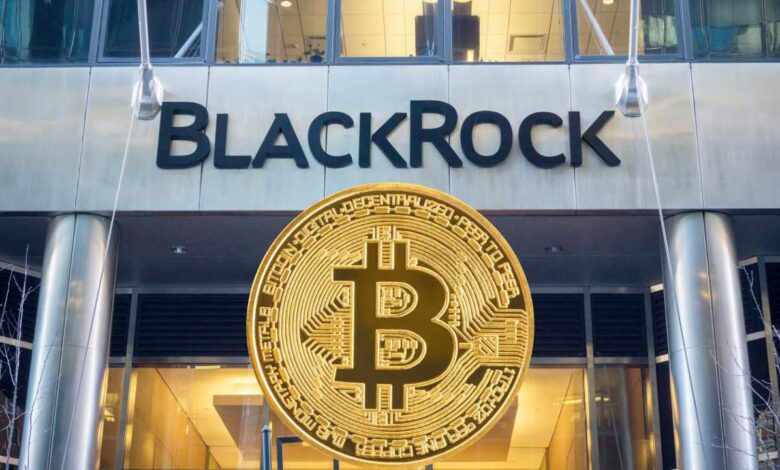
In recent discussions, Bloomberg analyst Eric Balchunas has highlighted the crucial role BlackRock and Bitcoin ETFs play in preventing disastrous declines in the value of Bitcoin (BTC). This phenomenon has sparked wide-ranging speculations and debates within the crypto community.
The Role of BlackRock and Bitcoin ETFs in Market Stabilization
Balchunas asserts that traditional investors, contrary to popular belief, have been instrumental in stabilizing Bitcoin’s price. This comes amid accusations that BlackRock uses Coinbase’s Bitcoin IOUs to manipulate the market, potentially shorting BTC and triggering price drops. Balchunas argues that many of these claims stem from disbelief at core Bitcoin investors selling off their assets.
Adding to this narrative, crypto analyst Ali Martinez revealed that miners offloaded over 30,000 BTC in just three days, which indicates substantial selling pressure from within the Bitcoin community. Martinez’s data suggests that the internal dynamics of the Bitcoin ecosystem are significant contributors to price fluctuations.
Alleged Price Suppression Role of Coinbase
Claims have surfaced that Coinbase might facilitate BlackRock in market manipulation by issuing Bitcoin IOUs. According to analyst Tyler Durden, BlackRock could potentially short BTC using these IOUs without holding the actual coin in a 1:1 ratio. Durden’s research points to Coinbase’s actions as key factors in the erratic price movements of BTC.
Coinbase’s Defense and Transparency
In response to these allegations, Coinbase CEO Brian Armstrong has emphatically denied giving BlackRock any special access to BTC borrowing rights. Armstrong asserts that Coinbase handles ETF minting and burning transparently and under frequent public audits. He emphasized that confidentiality agreements prevent Coinbase from disclosing the crypto addresses of institutional customers.
Currently, Bitcoin (BTC) is trading around $58,677, reflecting the ongoing volatility in the market. Analysts are keeping a close eye on the Federal Reserve’s anticipated rate cuts, which are expected to have a positive impact on BTC. Historically, such macroeconomic moves have been bullish for the flagship cryptocurrency.
Bitcoin: Implications and Debates
The unverified Bitcoin IOUs and allegations of market manipulation could potentially erode investor confidence in both BlackRock and Coinbase. However, Coinbase’s reputation as a regulated and audited company might mitigate some of the negative sentiment. This controversy also brings to light the larger debate about centralized versus decentralized assets.
Tron founder Justin Sun has criticized Coinbase’s wrapped Bitcoin (cbBTC) for its lack of proof of deposit, insufficient audits, and the ability to freeze balances. Sun likens cbBTC to a centralized, “confiscatable” asset, which raises significant concerns within the crypto community.
No Special Treatment to BlackRock
Coinbase continues to deny allegations of preferential treatment towards BlackRock. Armstrong has reiterated the company’s commitment to transparency and compliance while clarifying the nature of cbBTC. As the industry navigates concerns over centralization, Coinbase’s response will be pivotal in shaping market sentiment.
At the time of writing, Bitcoin is fluctuating in the $58,000 to $59,000 range. Analysts predict that the Federal Reserve’s potential rate cuts next week could positively influence BTC. Historically, such macroeconomic adjustments have been bullish for Bitcoin and could signal a favorable trend for the cryptocurrency.







